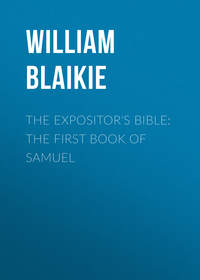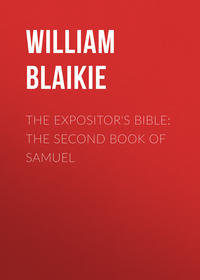 полная версия
полная версияThomas Chalmers
Further, the contention of Chalmers in his London lectures and in his latest deliverance (see p. 148) always was, that the state ought to support religion, not merely because people wished it, but because the religion was true. Would he, then, have found in the members of the present Parliament any such value for revealed truth, as such, as would have given him confidence in them as its guardians? A Parliament that numbered Agnostics, Jews, Roman Catholics, Unitarians, and what not among its members – how could such a body be a nursing-father or a nursing-mother to the Christian church? Such a Parliament could not safely be intrusted with its guardianship. It was a very different condition of things when the Scottish church allied itself to the Scottish Parliament, all or nearly all being members of the church. Nor could he have found any cause for believing that at any future time, within reasonable distance, the nursing of the church could be safely committed to parliamentary hands.
But what then? There were three great Presbyterian churches in Scotland, with much of their resources wasted through division, but capable, by reasonable arrangements, of so combining their forces that his grand object – the bringing of all Scotland under the influence of Christian teaching – might at the least be greatly advanced. We can hardly conceive of any other advice that Chalmers would have given than that the vinculum of state-connection should be severed, and all the three churches should unite, and rouse themselves for one great, sustained, imperial effort to turn the country into the garden of the Lord. But what of the endowments? It is just as difficult for us to conceive that he would have been in favour of alienating them to secular purposes. No, he would have said, that is not necessary, and should not be; keep them for their original purpose, and place them under some public management, so that every congregation of the united body may have a share of them, if it please. This was certainly his feeling in a somewhat parallel case. In 1833, when the Irish Church Reform Bill was under discussion, Chalmers wrote to his sister, Mrs. Morton, 'I am relieved by the bill, the only flaw in it (although that may be one of deadly mischief) being the secularisation of the sum which they expect from the sale of church lands.'6 We can readily conceive how the great soul of Chalmers would have expanded once more, and his face beamed as the hope arose anew, that even yet his beloved country might realise his magnificent ideal, and, by God's blessing on the labours of a united church, its waste and desolate places might yet blossom as the rose.
No doubt, Chalmers died a disappointed man, so far as his great scheme for the good of his country was concerned. He failed, and yet he did not fail.
'If he strained too wide,It was not to take honour, but give help;The gesture was heroic. If his handAccomplished nothing – (well, it is not proved)That empty hand thrown impotently outWere sooner caught, I think, by One in heavenThan many a hand that reaped a harvest in,And keeps the scythe glow on it.'We love the man for his noble aims and heroic efforts; and our love and admiration are only touched with a tenderer feeling, in that, when he failed, he did not abate one jot of heart or hope for his church and country, but left behind him his West Port experiment as a monument of what was possible, and an encouragement to all future generations to continue to cherish what had proved for him – a hope unfulfilled.
1
Thomas Chalmers: A Biographical Study. By James Dodds.
2
E.g. Dirleton, under Rev. Mr. Stark. See Hanna's Life, iii. 121.
3
Sir Arthur Gordon allows (1) that under the unworthy influence of the then Dean of Faculty (Hope) Lord Aberdeen was induced to omit certain provisions he had at first inserted; and (2) that the then Lord Advocate (Sir W. Rae) said in public that the Government measure would exceed in liberality even the liberal measure proposed by the Duke of Argyll. In the course of Sir Arthur's narrative we find the astounding statement, that though Lord Aberdeen sat as an elder in the Assembly from 1818 to 1828, he never once received the Sacrament in a Presbyterian church!
4
When asked to record in this Testament his opinion of Butler, he declined, because he did not feel worthy of the honour, but, being pressed, he wrote as follows: 'Butler is in theology what Bacon is in science. The reigning principle of the latter is that it is not for man to theorise on the works of God; and of the former that it is not for man to theorise on the ways of God. Both deferred alike to the certainty of experience, as being paramount to all the possibilities of hypothesis; and he who attentively studies the writings of these great men will find a marvellous concurrence between a sound philosophy and a sound faith. July 3, 1833.'
5
He used to speak with great delight of a poor woman, who told him that by going out at seven in the morning she earned enough, by raking among the ashes, to pay for the schooling of her eldest daughter, but wished the second also to attend. His first impulse was to offer to pay for her, but that, he feared, would hurt her independence; so he said: 'What would you say to rise at six in the morning and earn enough to pay for her too?' On the following Saturday she came to tell him she had done it. 'I could have stood before her,' he said, 'with cap in hand, for in truth she was above myself.'
6
Correspondence of Dr. Chalmers, p. 216.




